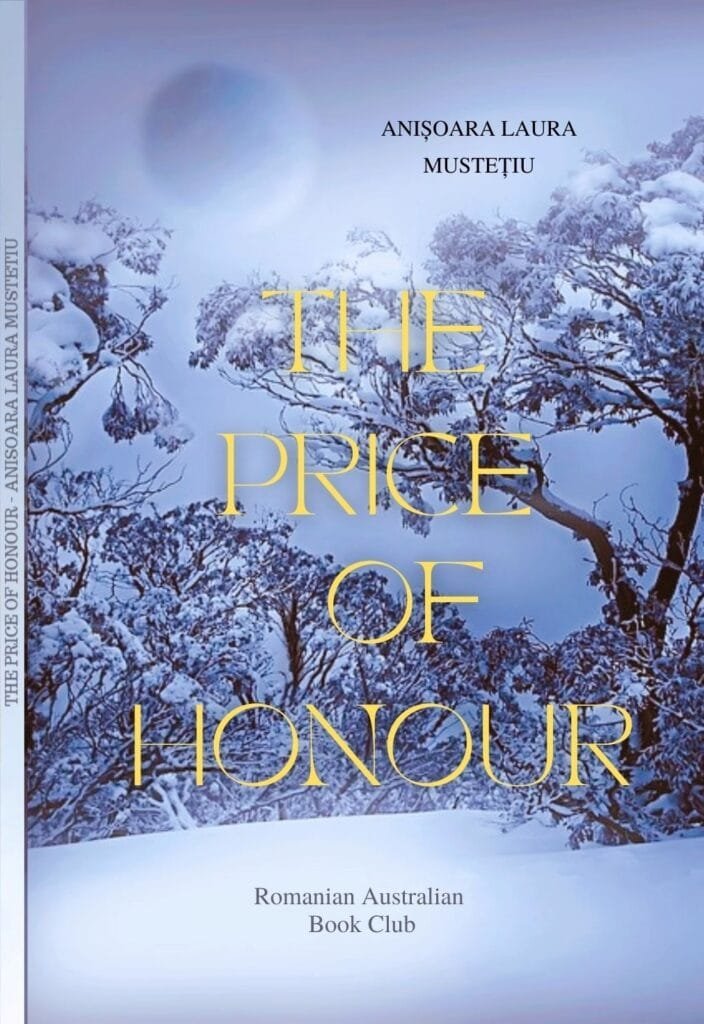To be a person of honor, according to the explanatory dictionary, means to be trustworthy, upright, and dignified. In Nordic cultures, the term “honor” is more closely linked to keeping one’s word, whereas in Balkan cultures, the focus is on the consequences of losing this invaluable trait. The word “honor” entered the Romanian language in the 19th century, borrowed from French (honneur), Italian (onore), and scholarly Latin (honos/honor, oris), carrying (almost) all the meanings and expressions present in the original languages.
Before then, Romanians used a Slavic term, cisti—meaning esteem, veneration—a word that had entered medieval traditions to express appreciation, respect, and the value of someone’s rank or prestige. This is why various documents predating the 19th century contained formulations such as “Cinstiți boieri…” (“Honorable boyars…”) or “Preacinstitului Vornic” (“To the Most Honorable Chancellor”). Similarly, expressions like “om vrednic de cinste” (“a man worthy of honor”), “a ține pe cineva în mare cinste” (“to hold someone in high regard”), and “a face un lucru în cinstea cuiva” (“to do something in someone’s honor”) were frequently used.
It is worth mentioning that, beyond the idea of public recognition, the term cinste also carried moral connotations—loyalty, chastity, integrity, dignity—especially in modern society.
The Price of Honor (A True Story) by Anișoara Laura Musețiu, published by the Romanian Australian Book Club in Sydney, Australia (2023), spans 188 pages and 20 chapters. It features a foreword by Aurelia Rînjea, a member of the Union of Romanian-Language Writers. The cover design, created by Anișoara Laura Mustețiu, is dedicated to the author’s mother, Maria Constantin. The novel presents a life lesson where Honor is the central character, shaping people’s destinies. Its presence—or absence—creates a variety of situations, sometimes requiring a person of integrity to pay a price, a price from which those who lack this trait may seem exempt. However, when considering the ultimate judge—the conscience—no one is truly spared.
Opening with a thought-provoking motto—”How far will people go to preserve their honor? To the point of no return!”—The Price of Honor follows the story of Măriuca, a strikingly beautiful, intelligent, and hardworking adolescent whose first, great, and only love suddenly collapses, leaving her with a bleeding scar in her soul forever. Her peaceful life, her plans, and the dreams she worked hard to fulfill are crushed by the force of destiny, embodied by a charismatic young teacher. Their encounter ignites an instant connection—love at first sight. But by the second meeting, the dice have already been cast.
What Măriuca believes is love, Ionuț perceives as the pursuit of the unattainable. Too young, too admired by the village girls, and too attached to his mother, he cannot envision marriage—even though village customs dictate that once a young man finishes school and starts working, he must marry and build a family to be considered a man of honor.
While Măriuca faces trials, enduring suffering inflicted by societal prejudices and village laws that apply only to women—who must be “pure as angels”—men, on the other hand, are permitted anything. In contrast, Ionuț thrives in the spotlight, conveniently forgetting that he has ruthlessly violated the code of honor. He sets out in search of a new conquest, but this time, the hunter becomes the hunted—marrying a fiery young woman who keeps him in a constant state of uncertainty. “What he liked about his young wife was the insecurity she imposed on him. He wasn’t sure whether he had truly fallen for her or if it was simply her tempestuous and provocative nature that stirred his ambition.”
Meanwhile, Măriuca carries his child, enduring the social isolation imposed upon her—for innocence always comes at a cost, whether in a rural or urban setting.
Măriuca’s entire life is deeply tied to the village—with its blessings and hardships, its unforgiving laws, its (pre)judices, but also its traditions and customs, which serve as markers of remembrance, symbols that help people transcend their mortal condition and step into a sacred space, adding meaning to everyday life.
Thus, the narrator presents Valea Sânzâienelor in great detail—its narrow streets, its hills, its vineyards—and introduces us to the walnut tree of childhood (“The Walnut in the Garden”). We all have our walnut tree, a tree from our childhood, a tree we might name Gică and talk to from time to time—a confidant, a friend… a humanized tree. Măriuca had such a walnut tree:
“In fact, it was that being in which she had complete trust, the one that, ever since childhood, had become the sanctuary of her confessions. She considered it a living being because she was convinced it had a soul. It was the first to understand that Măriuca had encountered love.”
The narrator also introduces us to local traditions, rituals, and customs—such as “The Wheat Crown” at the end of August, attending church as a space for communication and communion, and the everyday life of Romanian peasants, filled with toil. We learn of legends and fragments of history, including The Unicorn Bird—a uniquely beautiful Dacian creature—and the blood of those who fought against invaders for that enchanted valley.
In conclusion, The Price of Honor, written by Anișoara Laura Mustețiu, is both a monograph of the Romanian village in the second half of the 20th century and a bildungsroman, but also an eternal love story, because a mother’s love is infinite:
“patient, full of kindness (…), covers all things, believes all things, hopes all things, endures all things” (1 Corinthians 13).
It is a novel meant to be read through the wisdom of love.
Prof. Carina A. Baba

Available on AMAZON




